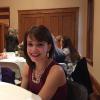Inquiry Project
By hpennerApril 21, 2015 - 12:00
Serendip is an independent site partnering with faculty at multiple colleges and universities around the world. Happy exploring!
When reading Fernando Naiditch’s article “Cross the street to a new world,” one quote in particular stuck out to me. Naiditch comments that although the school, and especially the teacher he was working with, labeled one of the students, Pedro, as “Learning Disabled,” what he came to realize is that the school had just lacked to teach Pedro about certain skills/concepts that the teacher and the school overlooked. He writes, “How could something this fundamental be overlooked in the classroom. I realized there is so much taken for granted. Teachers expect students to already know so many things when they come to class, and labels can easily explain away gaps in that knowledge” (Naiditch 28).

I'm interested in looking at how expecting students to bring themselves into the classroom is empowering and destabilizing (causing "crisis" in the Kirashimo sense). I've found that the most influential classes ask me to bring my outside passions and experiences into the classroom. This has the potential for being really growthful but could also go terribly wrong. I want to look at how to do that effectively at the college level in different disciplines to help students who may feel disempowered in a subject to explore their voices in different ways. This feels like a big topic, but I also want it to be useful in the bico context because I feel like this could be really helpful for our classrooms especially since we have so much student voice.

*Disclaimer: I recognize that this is a difficult and broad topic, but it's incredibly interesting to me and I hope that I can narrow it down and cultivate it through more discussion and research*
For this project, I would like to focus on a theme that we explored when reading Boler, which is emotional literacy. I would like to explore the intersection between the ideas of emotional literacy curricula, conflict-resolution education, and how the two can be both problematic and beneficial. I'm interested in the topic of conflict-resolution because of how much I feel like it was a part of my life in high school, and how in this class we were able to look at it through a lens of multicultural education.
I recently listened to an NPR story on the program This American Life called "550: Three Miles" (you can find it here: http://www.thisamericanlife.org/radio-archives/episode/550/three-miles). The story discusses a program of school 'exposure' in the Bronx, between a public school (majority students of color, from low-income families) and a private school (70% white, and $43,000/year - 1/5 students receive financial aid). Even though the schools were physically three miles apart, the students "needed a foreign exchange program to meet each other".